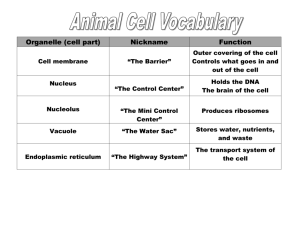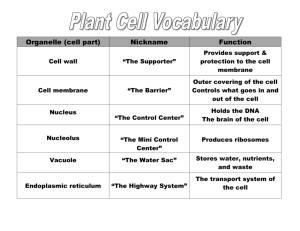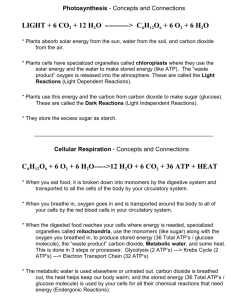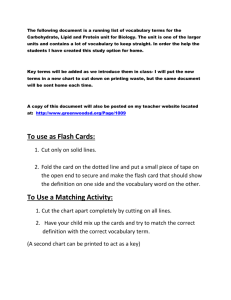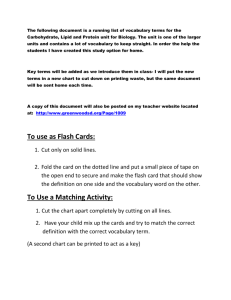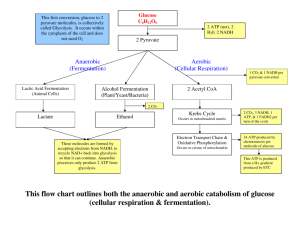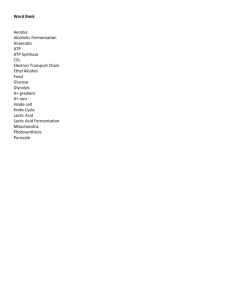The Keys to Photosynthesis
advertisement
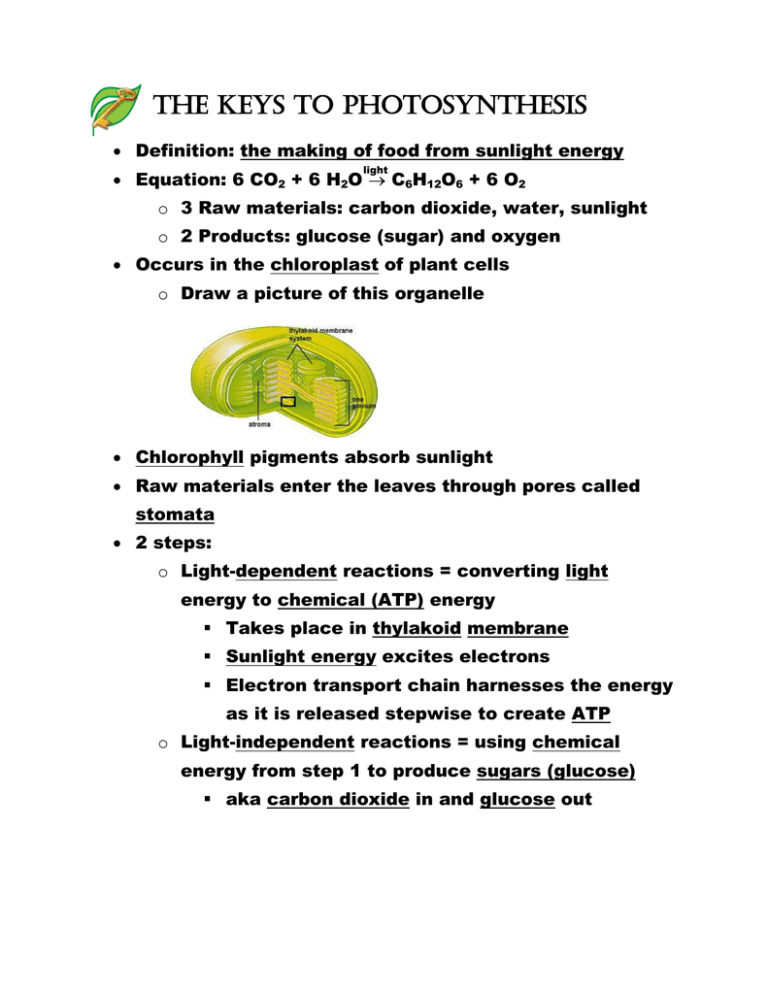
The Keys to Photosynthesis Definition: the making of food from sunlight energy light Equation: 6 CO2 + 6 H2O C6H12O6 + 6 O2 o 3 Raw materials: carbon dioxide, water, sunlight o 2 Products: glucose (sugar) and oxygen Occurs in the chloroplast of plant cells o Draw a picture of this organelle Chlorophyll pigments absorb sunlight Raw materials enter the leaves through pores called stomata 2 steps: o Light-dependent reactions = converting light energy to chemical (ATP) energy Takes place in thylakoid membrane Sunlight energy excites electrons Electron transport chain harnesses the energy as it is released stepwise to create ATP o Light-independent reactions = using chemical energy from step 1 to produce sugars (glucose) aka carbon dioxide in and glucose out The Keys to Cellular Respiration Definition: the break down of food molecules to produce ATP Equation: C6H12O6 + O2 H2O + CO2 + ATP o 2 Raw materials: glucose and oxygen o 3 Products: water, carbon dioxide, and ATP energy Occurs in all living cells Takes place in the mitochondria, which closely resembles the organelle used in photosynthesis o Name 2 structural similarities between these organelles: 2 membranes, squiggly membranes, bean-shaped o Draw a picture of this organelle: 2 types: aerobic (needing oxygen) & anaerobic (not needing oxygen) o These produce different amounts of ATP energy for the cell (give these numbers below): Fermentation = 2 ATP, Cellular Respiration = 36 ATP 3 steps: (also write the structure where each step takes place) o Glycolysis = breaks down glucose (sugars) o *Citric acid cycle = produces CO2 and ATP o Electron transport chain = energy released down each step to yield ATP and H2O *Fermentation may enter into the process here: o Definition = anaerobic means of creating energy for cell o This happens when the cell is lacking oxygen o 2 types: Lactic acid i.e. when your muscles are sore from exercising Alcoholic i.e. yeast in making bread
